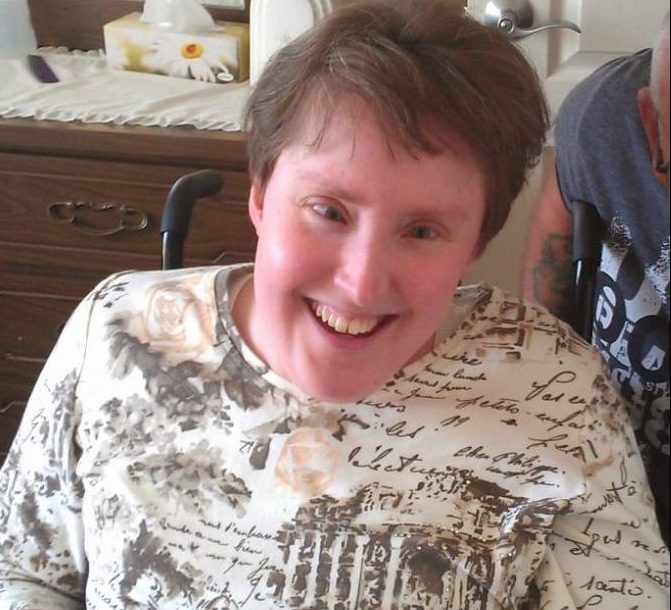The sister of a woman who died after she was admitted to a Halifax hospital with a severe bedsore says her family wonders how anyone will be held accountable now that police have dropped the matter.

Forty-year-old Chrissy Dunnington died in March 2018, seven weeks after entering hospital with a bedsore relatives said had created a fist-sized hole that reached her spine.
READ MORE: Halifax police close investigation into death of long-term care resident with bedsore infection
Her sister, Dorothy Dunnington, says the family filed a police report, claiming lack of proper care at the nursing home where she had been living amounted to a crime.
However, Dunnington confirmed Thursday that Dr. Matthew Bowes, the province’s chief medical examiner, has determined the death was not a criminal matter, while police say in a news release they have closed the case.
Bowes also says in his report that offering an opinion on the “quality of care that a person has received” is not part of his agency’s mandate.
“I’d just like to see somebody held accountable,” Dorothy Dunnington said in an interview, adding that she believes the accountability could be applied to staff involved in her sister’s care and the corporation responsible for the home.
She says her family’s hopes are pinned on results of an internal report expected from the provincial Health Department.
“We’re hoping the Department of Health through Protection for Persons in Care (Act) will show … that there were other things that could have been done to save her life,” she said. “If they had intervened sooner on the pressure sore, it wouldn’t have gotten into the state it was in.”

Get weekly health news
However, Dunnington also maintains that inquiries into deaths such as her sister’s should be carried out by an independent investigative arm in a different branch of government.
WATCH: N.S. spending $2.5 million to address bedsores at care homes

A spokesman for the nursing home where the family says Dunnington developed the bedsore says it has been “an extremely difficult situation for the family and everyone involved.”
Matt Proctor, vice president of marketing and communications at Shannex, said the company plans to contact the Dunnington family to determine “if there is any information about Ms. Dunnington’s health status that we may be able to share with the family that they may not have previously held.”
He said the facility wasn’t able to do this while the police investigation was underway.
“Residents who live in long-term care homes often have complex health conditions. Our teams work every day to assess, monitor and provide care for our resident’s individual needs. We have open lines of communication with residents and / or the resident’s legal decision maker,” he wrote.
The family of Chrissy Dunnington has also prepared a list of reforms they presented to all of the province’s political parties last year.
It included a call to have inspections done by a branch of government other than the Health Department, fines for repeated failures to meet bedsore care standards, a requirement that hospitals report severe cases to the police and “a requirement to have at least two staff members on duty” who can perform lifts of patients.
READ MORE: N.S. spending $2.5 million to address bedsores at care homes
A spokeswoman for the Health Department said the department appreciates the concerns the family has brought forward. Heather Fairbairn says long-term care facilities are now required to report the number of pressure injuries monthly and that information is posted online.
“Suspected abuse of residents in nursing homes is investigated under the Protection for Persons in Care Act. Under that process, the Department of Health and Wellness’s investigation into the care received by Ms. Dunnington was paused while Halifax Regional Police investigated criminal charges,” she wrote in an email.
“Now that the police investigation has concluded, the Department of Health and Wellness’s investigation is proceeding.”
Bedsores are caused by sustained pressure on certain parts of the body – typically at the tailbone, hips or heels – among some patients who are unable to move because of physical limitations or if they’ve been sedated with medication.
Dunnington suffered from the worst class of bedsore, Stage 4, which expose bone, muscle or tendons beneath broken skin.
This report by The Canadian Press was first published Sept. 19, 2019.




Comments